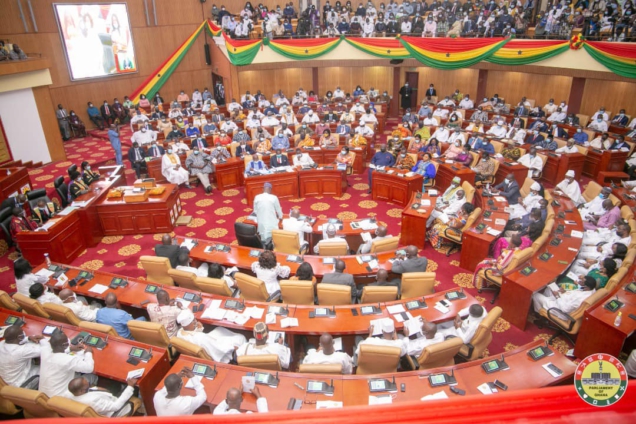A political scientist at the University of Ghana is worried about the lack of accountability whenever tax bills are passed.
Dr Kwame Asah-Asante says leaders of the country are quick to come out with new tax bills but are unable to provide detailed accountability on revenues earned from these taxes.
“The issue is that, are we going to be able to manage the resources so well that will be derived from this revenue? We have seen it time and again that our leaders are quick to come out with tax or taxes, but the money generated from it, we find it difficult to account for them,” he said on Monday.
On March 31, Parliament approved three new tax bills proposed by the Finance Minister, Ken Ofori-Atta.
According to Mr Ofori-Atta, the bills are crucial for the progress of government’s pursuit of an International Monetary Fund (IMF) deal.
The new tax bills include; the Income Tax Amendment Bill, The Excise Duty Amendment Bill and the Growth and Sustainability Amendment Bill and are expected to rake in close to GHs4 billion.
Speaking on the AM Show on JoyNews’, Dr Asah-Asante reiterated that the passing of the bills “is a good beginning for our journey to the IMF” but indicated that those in charge have not been accountable.
The political scientist lamented citizens' inability to demand accountability and as a result, government always slaps taxes on the people without disclosing details of revenues gained.
Meanwhile, he added that the government’s energy that is being used to make sure that it gets the basics right in securing an IMF deal could be channelled into creating home–grown solutions where there would be no need to seek an IMF bailout.
“If you look at how government wants to meet all the specifics directed by the IMF, right? They want to get all those basics right to have the facility.
"Then I ask myself; that energy that you derive from the system to pursue this programme, couldn’t you have used it in your economy, build the necessary capacity that you don’t go to the IMF,” he said.
According to him, Ghana always finds itself “in tears” as a result of some unfavourable conditions attached to the IMF deal.
Latest Stories
-
Dusty dry air: EPA issues red alert; recommends nose mask wearing, less outdoor activities
5 minutes -
Economy to remain on recovery path but growth projected at 3.6% in 2025 – Databank
9 minutes -
BoG outlines draft open banking directive for regulated financial institutions
10 minutes -
Deloitte lists mining, financial services, 3 other sectors to watchout in 2025
14 minutes -
People voted because promises weren’t fulfilled – Egyapa Mercer on voter discontent
15 minutes -
Deloitte forecasts average inflation of 11.9% for Ghana in 2025
15 minutes -
T-bills: Government’s target fell short by GH¢58.11m; interest rates surged
18 minutes -
‘Ghana’s education sector is in crisis’ – President-Elect Mahama calls for national forum
25 minutes -
Ghanaian movies released in 2024
30 minutes -
Another deadly crush in Nigeria at event offering free food
37 minutes -
Cyclone Chido kills 94 people in Mozambique
46 minutes -
How tactless NDC exonerated the Electoral Commission
1 hour -
Tiger Woods’ son Charlie, 15, hits first hole-in-one
1 hour -
‘¢25m is just a drop in the ocean’ – WAEC on delayed results
1 hour -
NPP’s Central Regional Chair, Robert Kutin dead
1 hour

